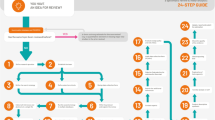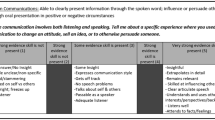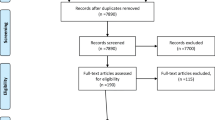Abstract
The Joint Task Force for Clinical Trial Competency (JTF) conducted a global survey of clinical research professionals requesting respondents to self-assess their competencies in each of the eight domains of its Core Competency Framework version 3.1. The results were analyzed based upon role, years of experience, educational level, professional certification, institutional affiliation, and continuing education participation. Respondents with professional certification self-assessed their competencies in all domains at higher levels than those without professional certification. The survey demonstrated that irrespective of role, experience, or educational level, training curricula in both pre-professional and continuing professional education should include additional content relating to research methods, protocol design, medical product development and regulation, and data management and informatics. These results validate and extend the recommendations of a similar 2016 JTF and other surveys. We further recommend that clinical and translational research organizations and clinical sites assess training needs locally, using both subjective and objective measures of skill and knowledge.
Similar content being viewed by others
References
Sonstein SA, Seltzer J, Li R, et al. Moving from compliance to competency: a harmonized core competency framework for the clinical research professional. Clin Res. 2014;28(3):17–235.
Brouwer RN, Deeter C, Hannah D, et al. Using competencies to transform clinical research job classifications. J Res Admin. 2017;48(2):11–25.
Behar-Horenstein LS, Potter JE, Prikhidko A, et al. Training impact on novice and experienced research coordinators. Qual Rep. 2017. https://doi.org/10.46743/2160-3715/2017.3192.
Calvin-Naylor NA, Jones CT, Wartak M, et al. Education and training of clinical and translational study investigators and research coordinators: a competency-based approach. J Clin Transl Sci. 2017;1(1):16–25. https://doi.org/10.1017/cts.2016.2.
Stroo M, Asfaw K, Deeter C, et al. Impact of implementing a competency-based job framework for clinical research professionals on employee turnover. J Clin Transl Sci. 2020; 4(4):331–335. https://doi.org/10.1017/cts.2020.22.
Saunders J, Pimenta K, Zuspan S, et al. Inclusion of the Joint Task Force competency domains in onboarding for CRC’s. Clin Res. 2017. https://doi.org/10.14524/CR-17-0007.
Zozus M, Lazarov A, Smith L. Analysis of professional competencies for the clinical research data management profession: implications for training and professional certification. J Inform Health Biomed. 2017;24(4):737–45.
Shimoda K, Watanabe H. Joint Task Force for Clinical Trial Competency (Japanese translation) Joint Task Force for Clinical Trial Competency 日本語訳. Rinsho/Yakuri Jpn J Clin Pharmacol Ther. 2020. https://doi.org/10.3999/jscpt.51.131.
Lee JY, Lensing SV, Botello-Harbaum MT, Medina R, Zosus M. Assesssing clinical investigator’s perceptions of relevance and competency of clinical trial skills: an international AIDS Malignancy Consortium (AMC) study. J Clin Transl Sci. 2020;5:e28. https://doi.org/10.1017/cts.2020.520.
Sonstein SA, Namenek Brouwer RJ, Gluck W, et al. Leveling the Joint Task Force Core competencies for clinical research professionals. Ther Innov Regul Sci. 2018. https://doi.org/10.1177/2168479018799291.
Sonstein S, Silva H, Thomas-Jones C, et al. Global self-assessment of competencies, role relevance, and training needs among clinical research professionals. Clin Res. 2016;30(6):42–9.
Hinkley, T. Workforce innovation: let’s focus on competency, not tenure. Clinical Researcher. 2017. https://acrpnet.org/2017/02/01/workforce-innovation-lets-focus-on-competency-not-tenure/. Accessed on 23 May 2021.
ACRP-CP Certification. https://acrpnet.org/certifications/acrp-cp-certification/. Accessed on 1 Nov 2021.
SoCRA Candidate Eligibility. https://www.socra.org/certification/ccrp-certification-exam/candidate-eligibility/. Accessed on 1 Nov 2021.
Ianni PA, Samuels EM, Eakin BL, et al. Assessments of research competencies for clinical investigators: a systematic review. Eval Health Prof. 2019. https://doi.org/10.1177/0163278719896392.
Awaisu A, Kheir N, Alrowashdeh HA, et al. Impact of a pharmacy practice research capacity-building programme on improving the research abilities of pharmacists at two specialised tertiary care hospitals in Qatar: a preliminary study. J Pharm Health Serv Res. 2015;6(3):155–64. https://doi.org/10.1111/jphs.12101.
Ellis JJ, McCreadie SR, McGregory M, et al. Effect of pharmacy practice residency training on residents’ knowledge of and interest in clinical research. Am J Health Syst Pharm. 2007;64(19):2055–63. https://doi.org/10.2146/ajhp070063.
Jeffe DB, Rice TK, Boyington JEA, et al. Development and evaluation of two abbreviated questionnaires for mentoring and research self-efficacy. Ethn Dis. 2017;27(2):179–88. https://doi.org/10.18865/ed.27.2.179.
Lowe B, Hartmann M, Wild B, et al. Effectiveness of a 1-year resident training program in clinical research: a controlled before-and-after study. J Gen Intern Med. 2008;23(2):122–8. https://doi.org/10.1007/s11606-007-0397-8.
Patel MS, Tomich D, Kent TS, et al. A program for promoting clinical scholarship in general surgery. J Surg Educ. 2018;75(4):854–60. https://doi.org/10.1016/j.jsurg.2018.01.001.
Robinson GFWB, Moore CG, McTigue KM, et al. Assessing competencies in a master of science in clinical research program: the comprehensive competency review. Clin Transl Sci. 2015;8(6):770–5. https://doi.org/10.1111/cts.12322.
Robinson GFWB, Switzer GE, Cohen ED, et al. A shortened version of the clinical research appraisal inventory: CRAI-12. Acad Med. 2013;88(9):1340–5. https://doi.org/10.1097/ACM.0b013e31829e75e5.
Lipira L, Jeffe DB, Krauss M, et al. Evaluation of clinical research training programs using the clinical research appraisal inventory. Clin Transl Sci. 2010;3(5):243–8. https://doi.org/10.1111/j.1752-8062.2010.00229.x.
Mullikin EA, Bakken LL, Betz NE. Assessing research self-efficacy in physician-scientists: the clinical research appraisal inventory. J Career Assess. 2007;15(3):367–87. https://doi.org/10.1177/1069072707301232.
Streetman DS, McCreadie SR, McGregory M, et al. Evaluation of clinical research knowledge and interest among pharmacy residents: survey design and validation. Am J Health Syst Pharm. 2006;63(23):2372–7. https://doi.org/10.2146/ajhp060099.
Cuser DA, Brown SK, Ingram JR, et al. Learning outcomes from a biomedical research course for second year osteopathic medical students. Osteopath Med Prim Care. 2010;4:4. https://doi.org/10.1186/1750-4732-4-4.
Cruser DA, Dubin B, Brown SK, et al. Biomedical research competencies for osteopathic medical students. Osteopath Med Prim Care. 2009;3:10. https://doi.org/10.1186/1750-4732-3-10.
Ameredes BT, Hellmich MR, Cestone CM, et al. The Multidisciplinary Translational Team (MTT) model for training and development of translational research investigators. Clin Transl Sci. 2015;8(5):533–41. https://doi.org/10.1111/cts.12281.
DeVellis RF. Scale development. In: Theory and applications. 2nd ed. Newbury Park: Sage; 2003.
Kane MT. An argument-based approach to validity. Psychol Bull. 1992;112(3):527–35.
Sullivan GM. A primer on the validity of assessment instruments. J Med Grad Educ. 2011;3(2):119–20.
Dunning D, Heath C, Suls JM. Flawed self-assessment: implications for health, education, and the workplace. Psychol Sci Public Interes. 2004;5(3):69–106. https://doi.org/10.1111/j.1529-1006.2004.00018.x.
Dunning D. The Dunning–Kruger effect: on being ignorant of one’s own ignorance. In: Advances in experimental social psychology, vol. 44. Cambridge: Academic Press; 2011. p. 247–96.
Centerwatch. (n.d.). Report: global clinical trial service market will reach $64B by 2020. http://www.centerwatch.com/news-online/2017/02/08/report-global-clinical-trial-service-market-will-reach-64b-2020/. Accessed on 19 May 2021.
Sonstein SA, Jones CT. Joint task force for clinical trial competency and clinical research professional workforce development. Front Pharmacol. 2018. https://doi.org/10.3389/fphar.2018.01148.
Vulcano D. CPI certification as predictor of clinical investigators’ regulatory compliance. Drug Inf J. 2012;46(1):84–7.
Silva H, Stonier P, Buhler F, et al. Core competencies for pharmaceutical physicians and drug development scientists. Front Pharmacol. 2013;4(105):1–7.
Koren M, Koski G, Reed DP, et al. APPI physician investigator competencies statement. Monitor. 2011;25(4):79–82.
Association of Clinical Research Professionals. ACRP core competency guidelines for clinical research coordinators. 2017. https://acrpnet.org/acrp-partners-in-workforce-advancement/core-competency-guidelines-clinical-research-coordinators-crcs/. Accessed on 1 Nov 2021.
Regulatory Affairs Professionals Society. Regulatory competency framework. (2016). https://www.raps.org/careers/regulatory-competency-framework. Accessed on 1 Nov 2021.
Ji P, Wang H, Zhang C, et al. A survey on clinical research training status and needs in public hospitals from Shenzhen. J Educ Train Stud. 2017;12:56–49.
CAAHEP—Clinical Research. (n.d.). https://www.caahep.org/CAAPCR.aspx. Accessed on 25 May 2021.
Shanley TP, Calvin-Naylor NA, Divecha R, et al. Enhancing clinical research professionals’ training and qualification (ECRPTQ): recommendations for good clinical practice (GCP) training for investigators and study coordinators. J Clin Transl Sci. 2017. https://doi.org/10.1017/cts.2016.1.
Moskowitz J, Thompson JN. Enhancing the clinical research pipeline: training approaches for a new century. Acad Med. 2001;76(4):307–15.
Funding
There was no external funding received related to this study.
Author information
Authors and Affiliations
Contributions
SS: participation in study concept, questionnaire development, analysis of results, and manuscript development. ES: participation in analysis of results and manuscript development. CA: participation in questionnaire development, IRB submission, analysis of results, and manuscript development. SW: participation in questionnaire development, analysis of results, and manuscript development. BB: participation in study concept, questionnaire development, IRB submission, analysis of results, and manuscript development.
Corresponding author
Ethics declarations
Conflict of interest
None of the authors declare any potential conflict of interest relevant to this work.
Supplementary Information
Below is the link to the electronic supplementary material.
Rights and permissions
About this article
Cite this article
Sonstein, S.A., Samuels, E., Aldinger, C. et al. Self-assessed Competencies of Clinical Research Professionals and Recommendations for Further Education and Training. Ther Innov Regul Sci 56, 607–615 (2022). https://doi.org/10.1007/s43441-022-00395-z
Received:
Accepted:
Published:
Issue Date:
DOI: https://doi.org/10.1007/s43441-022-00395-z




